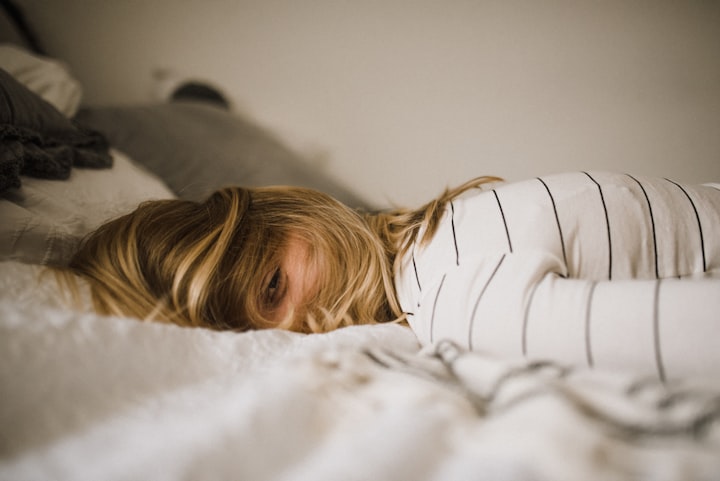Insomnia
Circadian Rhythm Sleep Disorder

Circadian rhythm sleep disorder is a condition that affects an individual’s natural sleep cycle, making it difficult for them to fall asleep or stay asleep at night. This disorder is caused by a disruption of the body's circadian rhythm, which is the natural biological clock that regulates our sleep-wake cycle.
ARE YOU FACING CIRADIAN RYTHM SLEEP DISORDER?
Circadian rhythm sleep disorder can be caused by a variety of factors, including shift work, jet lag, and irregular sleep schedules. In shift work, individuals work during hours that are typically reserved for sleep, such as night shifts, which can cause a disruption in their natural sleep pattern. Jet lag occurs when individuals travel across time zones, causing their biological clock to become desynchronized with their new environment. Irregular sleep schedules, such as staying up late on weekends and sleeping in, can also cause a disruption in the circadian rhythm.
Symptoms of circadian rhythm sleep disorder may include difficulty falling asleep, difficulty staying asleep, waking up too early, excessive daytime sleepiness, and difficulty concentrating during waking hours. These symptoms can have a significant impact on an individual’s daily life, making it difficult to perform well at work or school and potentially leading to long-term health problems.
There are several types of circadian rhythm sleep disorder, including delayed sleep phase syndrome, advanced sleep phase syndrome, shift work disorder, and non-24-hour sleep-wake disorder.
Delayed sleep phase syndrome is characterized by a delay in the body's natural sleep-wake cycle, causing individuals to have difficulty falling asleep until very late at night and difficulty waking up in the morning. This can lead to excessive daytime sleepiness and difficulty functioning during waking hours.
Advanced sleep phase syndrome, on the other hand, is characterized by an earlier-than-normal sleep schedule, causing individuals to feel sleepy in the early evening and wake up very early in the morning. This can also lead to difficulty functioning during waking hours.
Shift work disorder is a type of circadian rhythm sleep disorder that affects individuals who work non-traditional hours, such as night shifts. This can cause a disruption in the natural sleep-wake cycle and lead to difficulty falling asleep during the day and difficulty staying awake at night.
Non-24-hour sleep-wake disorder is a rare type of circadian rhythm sleep disorder that affects blind individuals, who lack the ability to detect light and darkness. This can cause their natural sleep-wake cycle to become desynchronized with the 24-hour day, leading to difficulty sleeping at night and excessive daytime sleepiness.
Treatment for circadian rhythm sleep disorder may vary depending on the type and severity of the disorder. In some cases, lifestyle changes such as maintaining a regular sleep schedule, avoiding caffeine and alcohol before bedtime, and ensuring that the sleeping environment is conducive to sleep can be effective in managing symptoms.
In more severe cases, medication may be prescribed to help regulate the sleep-wake cycle. Melatonin is a hormone that is naturally produced by the body and helps regulate sleep, and may be prescribed in supplement form to help manage circadian rhythm sleep disorder.
Bright light therapy may also be used to help regulate the circadian rhythm. This involves exposure to bright light in the morning or evening, depending on the type of circadian rhythm sleep disorder, and can help reset the body’s biological clock.
In conclusion, circadian rhythm sleep disorder is a condition that can have a significant impact on an individual’s daily life. Understanding the causes and symptoms of this disorder is important in order to manage it effectively. Treatment options may vary depending on the type and severity of the disorder, but lifestyle changes, medication, and bright light therapy can all be effective in managing symptoms and restoring a healthy sleep-wake cycle.
About the Creator
dmohan kumar
I am a freelance article writer, sql developer from India. My hobby is to practice small programs, read, watch videos to learn more.
I was working in a Pharma company since past 5 years, before that I used to work in call centers for 2years.





Comments
There are no comments for this story
Be the first to respond and start the conversation.